10 years since Rana Plaza tragedy
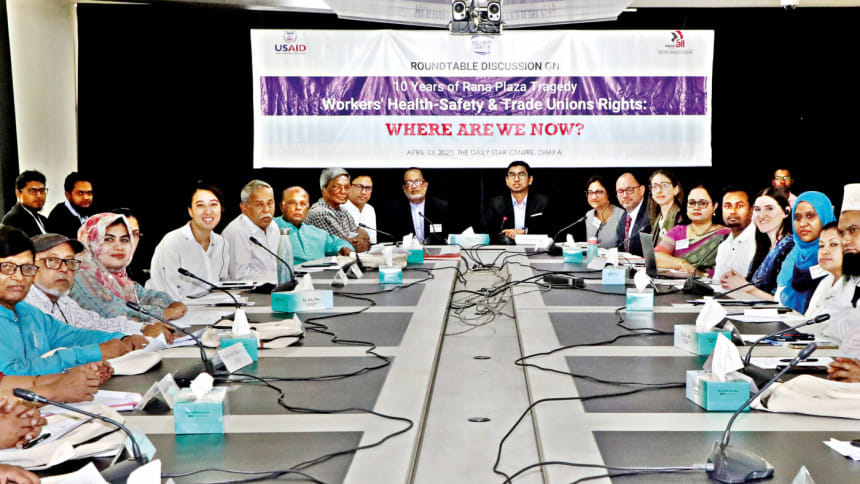
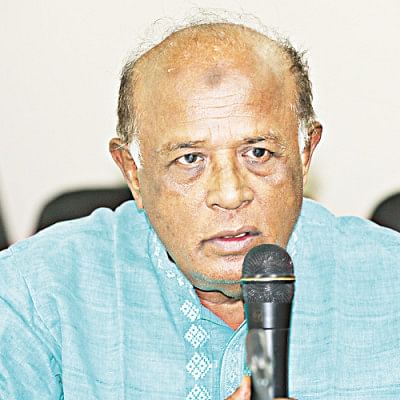
Kutubuddin Ahmed, General Secretary, IndustriAll Bangladesh Council (IBC)
Following the tragic Rana Plaza incident, IBC and several other organisations joined forces to improve conditions for workers. A committee was formed to investigate the accident, and 36 individuals, including Sohel Rana, were held accountable. The recent release of Sohel Rana on bail has been strongly criticized by trade unions, and it is important that all those responsible face exemplary punishment.
The Accord and Alliance have made significant progress in improving fire and building safety in around 1,800 industries. However, the RMG Sustainability Council (RSC) has not produced expected results and needs to be reorganized with the input of trade unions. Strengthening trade unions is crucial to improve conditions for workers, and the government and other stakeholders should work together to make them more efficient and organised. International intervention is necessary to update labour laws and make them more favourable for workers. By effectively implementing the ILO roadmap, we can achieve sustainable and durable trade unions and industrial growth.

Monika Hartsel, Deputy Country Program Director, Solidarity Center- Bangladesh office
We are gathered here today to remember the tragic collapse of Rana Plaza. We mourn for the 1,138 people who were killed. We mourn for their families and friends who miss them every day. And we mourn for the injustice in the system that allowed this preventable tragedy to occur. In their memories, let us recommit ourselves to the collective struggle for safe, healthy and just workplaces.
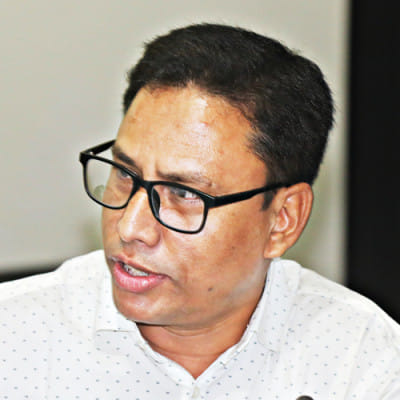
Rashadul Alam Raju, Executive Member, IndustiAll Bangladesh Council (IBC) and General Secretary, Bangladesh Independent Garment Workers Union Federation (BIGUF)
Despite numerous initiatives taken after the Rana Plaza tragedy, there are still obstacles hindering the improvement of workers' situation in Bangladesh. Workers who attempt to unionize are being blacklisted from the Workers' Database, preventing them from securing employment elsewhere. Safety committees established in most factories do not adhere to regulations and have limited scope for workers to voice their concerns. The replacement of Accord with RSC has not produced expected results, with RSC failing to take a neutral stance and taking a long time to address complaints. The process for registering a trade union has become lengthy, with only a small group being selected while others face harassment. Communication between unions and workers is lacking, hindering their performance. To address these issues, a productive working relationship between owners and workers is needed, with active participation and proper representation of workers. Freedom of Association and workers' representation must be prioritised, and union registrations and complaints should be processed in a timely manner. The process of forming trade unions should be transparent. RSC's effectiveness should also be improved.

Peter D. Haas, United States Ambassador to Bangladesh
Rana Plaza drew the world's attention to the unsafe conditions for Bangladesh's factory workers and raised important questions around safety and transparency in the global garments industry. Today, garments factories in the export sector are safer due to agreements among unions, global brands, and employers who work together under the former Accord and Alliance.
Bangladesh has digitized the trade union registration process, which will help workers form unions and complete their registrations. They've also digitized the labour inspection section to improve data accessibility and transparency. In order to become a SMART, developed Bangladesh, workers' safety and labor rights will need to be ingrained in Bangladesh's ethos. In that regard, here are three areas where Bangladesh might focus moving forward:
First, Bangladesh should seek to replicate its progress in industrial safety in the export-orientated RMG sector throughout the entire economy. We are all aware of the recent fire outbreak in Bangabazar, explosion at the Seema Oxygen Plant, the fire at a container depot in Chittagong, and the Hasheem Food factory fire. These examples illustrate the need for stronger inspections and enforcement of labour laws across all industry sectors.
Second, Bangladesh should further strengthen the right of workers to form and join independent trade unions and to collectively bargain for better work conditions. The rights to freedom of association and collective bargaining are enabling rights for the realization of all other labour rights. When workers can form or join independent unions, they can defend their rights and collectively advance their interests. In fact, the decrease in work-related accidents in the industrialized world is largely due to the courageous efforts of organised labour. Unionized workers are empowered to negotiate conditions more equally with employers, demand better wages, and challenge unsafe working conditions. Unions also play a key role in advancing democratic values at the workplace. Workers must also have access to remedies for labour and safety violations. Collective bargaining agreements can protect workers who refuse precarious work assignments or confront management on health and safety concerns.
And third, all stakeholders must be held accountable for workplace safety and labour rights, as improving occupational safety and health and labour rights is a shared responsibility. Governments, manufacturers, brands, buyers, workers, unions, and consumers all have a critical role to play in ensuring that goods are produced safely and that everyone in the process earns a fair return. Governments must play a critical role in developing strong labour protections and ensuring that they are respected. Manufacturers must prioritise keeping their workers safe and finding ways to collaborate with their workforce. International brands and buyers must do more to demand that labour rights are respected throughout their supply chains. This means adopting purchasing and pricing strategies that support living wages and promote high labour standards among their suppliers. Workers and their unions must advocate for their rights transparently and peacefully, and consumers must be mindful of the working conditions of the people they buy from.
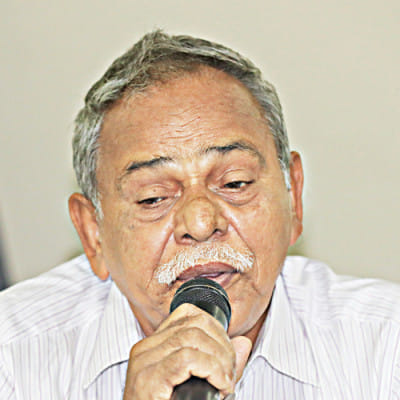
Anwar Hossain, Chairman of National Coordination Committee for Workers' Education (NCCWE) & President of Bangladesh Jatiyatabadi Sramik Dal (BJSD)
Bangladesh must prioritise the establishment of strong and independent trade unions to facilitate constructive dialogue between workers and employers. The absence of such unions has been a major obstacle in resolving disputes and addressing issues in the past, as evidenced by the tragic Rana Plaza incident. Empowering workers with the right to collective bargaining and freedom of association will allow them to voice their concerns and negotiate for better working conditions. Strengthening workers' rights through the formation of robust trade unions is crucial for a safer and fairer workplace environment in Bangladesh.
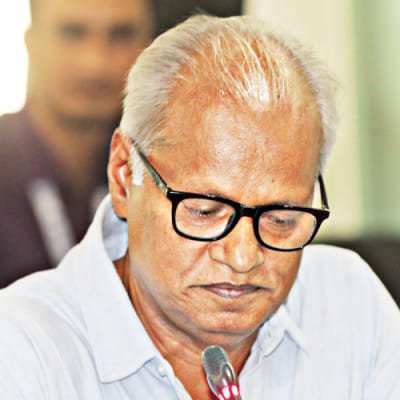
Razequzzaman Ratan, President of Samajtantrik Sramik Front (SSF)
The tragedy at Rana Plaza highlighted the critical need for functioning trade unions in Bangladesh, one that can effectively represent and advocate for workers' rights. Currently, there are over 9,000 trade unions in the country, but many are either dysfunctional or too afraid to stand up for workers' interests.
The monitoring system in place prior to the disaster was inadequate, with 218 significant incidents occurring before the Rana Plaza collapse, and major troubles persisting even after the event. For example, just one month before the Shezan factory fire, the factory had been given a satisfactory rating during monitoring. Despite an increase in the number of factory inspectors from 92 to 393 and upgrades to their equipment, the safety at factories remains unsatisfactory. Moreover, there is no accountability for inspectors after such incidents.
There are no dedicated hospitals for workers in industrial areas. There are also no provisions for the rehabilitation of injured workers and their return to work have not been addressed.
The maximum penalty of four years of imprisonment for those responsible for factory catastrophes is farcical and does not reflect the severity of the situation.

Nazma Yesmin, Director of Bangladesh Institute of Labour Studies (BILS)
The Rana Plaza incident claimed the lives of 1,138 workers, yet there has been no significant policy-level change since then. When the labour law was amended in 2018, many labour rights were curtailed, especially maternity benefits for female workers.
The current draft should ensure a worker's compensation in any trouble, in line with ILO Convention 121 and serious injury provision 155. The victims of Rana Plaza are traumatised and unable to return to work; their mental health treatment should be addressed adequately. Although they received initial treatments, they were not compensated at later stages. These are their rights, not favours.
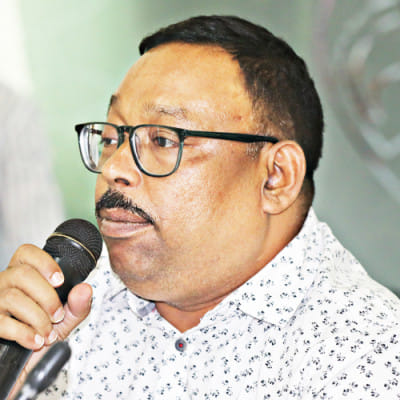
Chandan Kumar Dey, President of Bangladesh Independent Garment Workers' Union Federation (BIGUF)
Since the Accord was forced to leave the country, the situation in garment factories has regressed, resembling the conditions that led to the Rana Plaza disaster. Safety inspections have become perfunctory and do not adequately address legitimate safety concerns. Moreover, information about the safety conditions of factories, including fire safety and building codes, is not readily available. We propose the appointment of a permanent safety supervisor in all factories to ensure compliance with safety measures, such as checking fire extinguishers and keeping emergency exits clear. Genuine trade union workers should be allowed to engage in collective bargaining, given the worsening work conditions in EPZs.
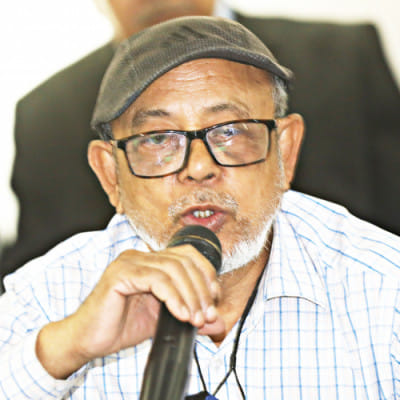
Ruhul Amin, President of Bangladesh Federation of Workers' Solidarity (BFWS)
Unfortunately, we have seen a shift from bargaining to negotiations and social dialogues in recent years, despite the absence of any provisions for these in our labour laws. As a result, our collective bargaining power has diminished, leaving our 1,200 trade unions with a little capacity to negotiate effectively on behalf of workers. These unions are often established and led by owners and worker representatives who do not genuinely represent the interests of garment workers.

China Rahman, General Secretary of Federation of Garments Workers (FGW)
The Accord has made significant strides, particularly in the areas of building and fire safety, as well as addressing workers' health and bargaining issues. However, the reinstatement of Accord International is necessary to ensure the sustainability of Bangladesh's RMG sector.
Women employees face several challenges, including a lack of childcare facilities, restrictions on continuing work after having two children, and frequent harassment for joining trade unions. As a result, the number of women workers in the RMG sector is declining.

Advocate Faruq Hossain, Assistant Legal Officer, Safety & Rights Society
The tragedy at Rana Plaza highlighted the inadequacy of our rescue capabilities, necessitating a critical assessment of our advancements in this domain. Additionally, given the higher safety risks associated with taller industrial buildings, it is imperative that we deliberate on imposing limitations on their height to ensure the safety and well-being of workers.

Kawsar Ahmed Polash, President of the United Federation of Garments Workers
Previously, according to labour laws, workers were required to join an industry if it was relocated within five kilometres. However, the provision has been amended to 40 kilometres, and workers who do not join the new location will not receive their service benefits. This is a blatant infringement of labour rights.
During industrial unrest, the workers are often held responsible without identifying the root cause of the unrest.

Mohamad Anis Agung Nugroho, Programme Manager, International Labour Organization (ILO)
In the process of amending labour laws, including the EPZ law, the involvement of trade unions is crucial. Currently, the ILO is preparing a technical note on these amendments, and I am confident that trade union members will actively contribute their input to this process.
The RMG sector has witnessed a significant improvement in occupational safety and health. However, there has been a recent increase in non-compliance, and the grievance redressal mechanism has been on the decline.
Out of the 440 factories where the ILO's Better Work programme is implemented, 147 of them have registered trade unions according to the Department of Labour's website. However, during our factory visits, we were only able to meet with the executive committee of 56 factories, leaving 91 factories on the Department of Labour's trade union list where we were unable to identify or meet their executive committees. And out of the 56 factories, only seven had collective bargaining agreements.
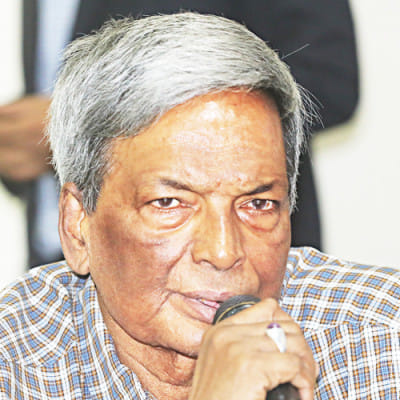
Amirul Haque Amin, President, IndustriAll Bangladesh Council (IBC)
The Rana Plaza incident is often labelled as an "accident," but it was actually a murder. The workers had identified cracks in the building and refused to work there, but they were coerced into joining the factory. Therefore, I believe it is necessary to take a firm stance on the matter.
We are aware that crores of taka were donated to the Rana Plaza Trust fund. It is imperative for the government to reveal how the funds have been utilised.
There were 31 brands that had orders in the five factories of Rana Plaza. Following the incident, 19 of these brands contributed to the Rana Plaza fund, while 12 did not including Walmart. These 12 brands are still operational in Bangladesh, yet we have failed to take any action against them. It is unfortunate that only 46 brands have signed the International Accord.
Finally, we must ensure that workers can exercise their right to organise, strike, and bargain without any hindrance.
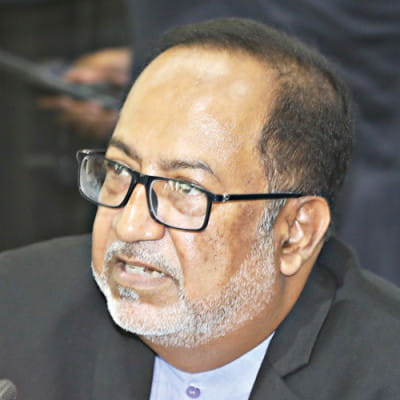
AKM Nasim, Country Program Director, Solidarity Center- Bangladesh office
The representation of workers is in jeopardy, as many unions often exist only in names. There is no effective participation of workers in safety committees also. The ongoing effort of many to replace the unions' rights of collecting bargaining with so-called social dialogue is detrimental to the interest of the workers.
We have been discussing the need to reform labour laws, which presents an opportunity to address these issues. We also need to ensure the implementation of national labour laws in EPZs. The workers of newly established Economic Zones (EZs) are also deprived of the freedom of association rights as the EPZ labour law is applicable to them, not the national labour law. If we can ensure workers' rights to organise and collective bargaining, and safety in every workplace, it will be a fitting tribute to those who lost their lives in industrial disasters such as Rana Plaza.
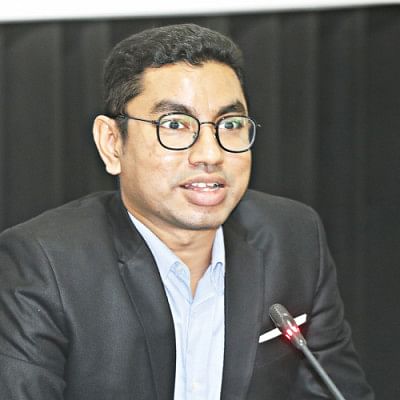
Tanjim Ferdous, In-charge of NGO and Foreign Missions at the Business Development Team, The Daily Star, & Moderator of the session
Undoubtedly, the garment sector is one of the most significant economic drivers in Bangladesh, primarily due to the availability of easily accessible labour. However, the industry's failure to prioritize the safety and well-being of its workers has resulted in numerous hazardous incidents, predominantly fire outbreaks. The collapse of Rana Plaza in Savar on 24 April 2013 resulted in the death of 1,135 people and injuries to 2,500 others. Subsequently, efforts were made to enhance compliances within the sector. Thanks to the support of donor agencies, labour unions, and national-level organisations, notable progress has been made. This discussion centres around evaluating the improvements made in the labour conditions over the past decade and exploring further avenues for improvement.
Recommendations
- Improving occupational safety, health, and labour rights is a shared responsibility, and all stakeholders should be held accountable for workplace safety and labour rights.
- Ensure effective implementation of the International Accord in Bangladesh
- The involvement of trade unions is essential in the process of amending labour laws, including the EPZ law.
- The ILO roadmap should be implemented properly.
- Ensure that workers can exercise their right to organize, strike, and collectively bargain without any hindrance.
- To ensure the proper representation of workers' voices, the process of forming trade unions should be made fast, more transparent and streamlined.
- Replicate the advancements in industrial safety achieved in the export-oriented RMG sector in all industries in Bangladesh.
- Ensure that the Department of Inspection for Factories and Establishments (DIFE) operates efficiently and with integrity to protect the safety and health of workers in the workplace.
- Establish hospitals in industrial areas to cater to the health needs of workers.
- The injured workers must have access to adequate compensation, rehabilitation support and opportunity to return to work.

 For all latest news, follow The Daily Star's Google News channel.
For all latest news, follow The Daily Star's Google News channel. 



Comments